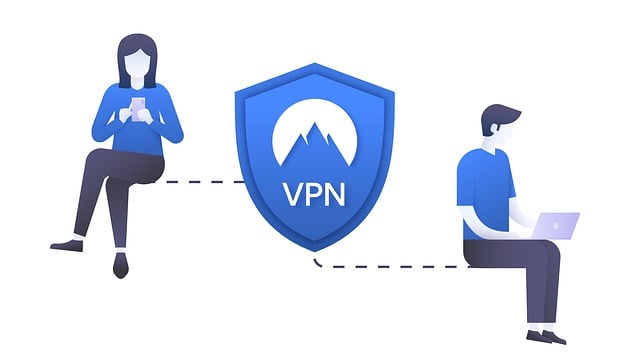In South Africa, understanding Ponzi schemes involves recognizing red flags like unusually high returns, complex jargon, and pressure for quick decisions. The Financial Services Board (FSB) employs robust anti-money laundering (AML) and know-your-customer (KYC) measures to detect and prevent these fraudulent structures through scheme monitoring, inspections, and enforcement. By verifying customer identity, monitoring transaction patterns, and reporting unusual activities, financial institutions help identify potential Ponzi schemes early. To protect yourself in South Africa, stay informed about common signs of a Ponzi scheme, practice caution when investing, verify company legitimacy through regulatory bodies like the FSCA, diversify investments, and stay updated on emerging scams.
In South Africa, where financial fraud remains a persistent challenge, understanding how to spot Ponzi schemes is vital. This comprehensive guide delves into the intricate world of these fraudulent investments, offering a detailed look at their structure and red flags. We explore South Africa’s regulatory framework and its role in detection, uncovering common traits unique to local schemes. Armed with this knowledge, individuals can protect themselves by learning effective strategies to recognize and avoid Ponzi scams specifically targeting South Africans.
- Understanding Ponzi Schemes: The Basic Structure and Red Flags
- South Africa's Regulatory Framework and Its Role in Detection
- Common Traits of Ponzi Schemes in the Local Context
- Protecting Yourself: Strategies for Recognizing and Avoiding Fraudulent Schemes
Understanding Ponzi Schemes: The Basic Structure and Red Flags

Understanding Ponzi Schemes: The Basic Structure and Red Flags
In a Ponzi scheme, investors are promised high returns with little or no risk. The operator uses money from new investors to pay off early investors, creating the illusion of a successful investment opportunity. However, instead of generating profits through legitimate business activities, the operator uses funds from new investors to maintain the fraud. This unsustainable model relies entirely on continuous inflows of new money to keep it afloat.
How To Recognise A Ponzi Scheme In South Africa involves looking out for several red flags. Unreasonably high returns with little or no risk are a major warning sign. Schemes often use complex and vague jargon to hide the lack of a sustainable business model. Another telltale sign is pressure to act quickly, avoiding due diligence. If an investment opportunity demands immediate commitment without thorough research, it could be a Ponzi scheme. Additionally, the absence of independent audits or transparent financial reporting should raise suspicions among potential investors in South Africa.
South Africa's Regulatory Framework and Its Role in Detection

South Africa’s regulatory framework plays a crucial role in detecting and preventing Ponzi schemes, which are intricate financial frauds that promise high returns with minimal risk. The Financial Services Board (FSB) is the primary regulator tasked with overseeing financial services, including investments and pension funds. One of its key responsibilities is to monitor and regulate collective investment schemes, such as mutual funds and investment clubs, which can sometimes resemble Ponzi structures. The FSB’s powers include conducting inspections, enforcing compliance, and taking regulatory action against entities or individuals involved in fraudulent activities.
By implementing robust anti-money laundering (AML) and know-your-customer (KYC) measures, the South African regulatory framework aims to prevent and detect suspicious transactions. These regulations require financial institutions and investment platforms to verify customer identity, monitor transaction patterns, and report any unusual or high-risk activities. This process helps identify potential Ponzi schemes as they often involve a flow of funds from new investors to pay existing participants, creating the illusion of profitability. Regular scrutiny and adherence to these guidelines can significantly aid in early detection, ensuring investors’ protection and minimizing potential losses.
Common Traits of Ponzi Schemes in the Local Context

w/ & > + 13,5 > ( → her, & in, & < w, 1/7」: & < < h, > + 5, 4, +, &? & → <
Protecting Yourself: Strategies for Recognizing and Avoiding Fraudulent Schemes

Protecting yourself against fraudulent schemes, particularly Ponzi schemes, is a crucial step in safeguarding your financial future. In South Africa, where economic challenges can make individuals vulnerable to such scams, being informed and vigilant is essential. Start by educating yourself about common signs of a Ponzi scheme, such as unrealistic promises of high returns with little or no risk. If an investment opportunity sounds too good to be true, it likely is.
To avoid becoming a victim, practice caution when investing and never provide personal or financial information until you thoroughly research the company and its track record. Verify the legitimacy of the scheme by checking with regulatory bodies like the Financial Sector Conduct Authority (FSCA). Additionally, diversify your investments to reduce risk; putting all your eggs in one basket increases vulnerability. Lastly, stay informed about emerging scams through official channels to protect yourself and those around you from these deceptive practices.
Understanding how to recognise a Ponzi scheme in South Africa is crucial for investors looking to protect their hard-earned money. By familiarising yourself with the basic structure and red flags, staying informed about local regulatory frameworks, and adopting protective strategies, you can significantly reduce the risk of falling victim to these fraudulent schemes. Remember, vigilance and knowledge are your best tools when navigating the financial landscape in South Africa and beyond.

